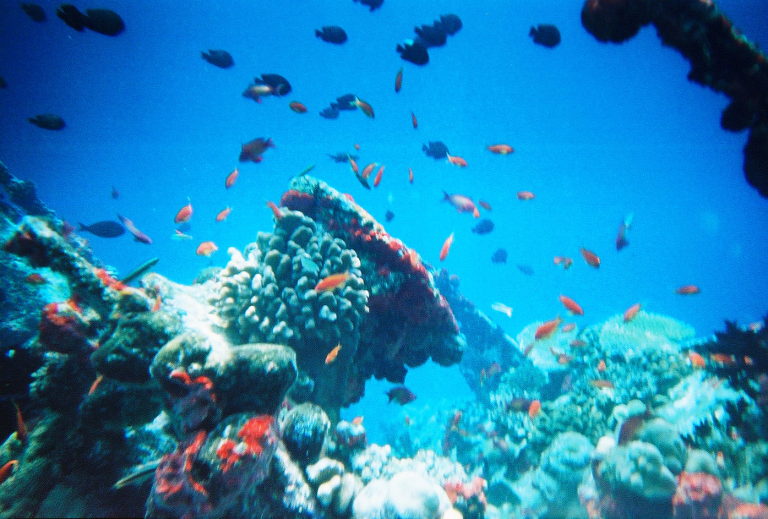(Conversation recorded on March 22nd, 2022)
Show Summary
On this episode, physicist Antonio Turiel joins me for a wide-ranging discussion from oceans and climate to energy and culture. Oceans are one of the most important factors regulating the Earth’s climate, and yet they receive relatively little attention from the climate community. There are numerous critical risk factors to unpack regarding just the oceans alone – and still so much that we don’t know. This conversation also delves into the complexity of an economic system requiring continuous growth itself embedded in an Earth system that is already hitting its limits. What are the boundaries of our energy systems and what options do we have – and not have – for the future? Is the root of the critical issue we’re facing – not a technical problem – but a cultural problem?
About Antonio Turiel
Antonio Turiel Martínez is a scientist and activist with a degree in Physics and Mathematics and a PhD in Theoretical Physics from the Autonomous University of Madrid. He works as a senior scientist at the Institute of Marine Sciences of the CSIC specializing in remote sensing, turbulence, sea surface salinity, water cycle, sea surface temperature, sea surface currents, and chlorophyll concentration. He has written more than 80 scientific articles, but he is better known as an online activist and editor of The Oil Crash blog, where he addresses sensitive issues about the depletion of conventional fossil fuel resources, such as the peak of oil and its possible
To watch this video episode on Youtube → https://youtu.be/n1fIkS4y798
Show Notes and Links to learn more:
00:09 – Antonio Turiel info + works + The Oil Crash
01:39 – Youtube Video
04:36 – TGS Podcasts on Peak Fish (Daniel Pauly) and Hydrogen Sulfide (Peter Ward) and Cetacean Activism (DJ White)
05:02 – Ocean acidification
05:18 – Ocean mixing and absorption of CO2
06:48 – pH sensitivity of marine organisms
08:01 – 80% of the heat from climate change has been absorbed by the oceans
08:18 – Heat capacity
09:33 – Conditions for sudden release of ocean heat
11:52 – How ocean drives climate
11:55 – El Niño/La Niña
13:44 – Coral reefs 75% gone by 2050 or nearly gone by 2100
13:53 – Marine animals dependence on coral
14:05 – Sea surface temperatures effects on coral
16:01 – Trophic food chains
16:40 – Decline of biodiversity in the Mediterranean
18:50 – Winds are becoming more intense in the open ocean and less intense in the inland continents
20:24 – Hypoxic zones
21:14 – Gill Oxygen Limitation Theory
21:59 – Blue Icebergs
23:08 – General patterns of more organisms moving away from the equator
23:26 – Rate of gender in fishes changing based on temperature
24:10 – Tree monocultures in Spain
24:29 – Atlantic Meridional Ocean Current (AMOC)
24:40 – AMOC slowing
27:24 – How much has the AMOC slowed and how much will it slow
28:04 – Thermohaline Current and effects of icebergs melting
30:34 – The Day After Tomorrow
31:02 – Climate if the AMOC stopped
31:30 – Increase of hurricanes with a warmer ocean/stopped AMOC
32:19 – Effect of a multi-year nuclear winter on oceans
33:45 – Without human influence on climate, we would be heading towards an ice age
34:50 – Particulate matter usually only lasts in the atmosphere for a few years and then settles
36:45 – Fossil fuel depletion
38:01 – Global decline rate of current wells is 7%
38:40 – Germany rebooting coal
39:29 – IPCC models
40:49 – Recent heatwaves and droughts in Europe
42:40 – Plastic accumulation in the oceans and endocrine disruptors
43:49 – Organic chemical pollution in the ocean
44:47 – Exploiting natural resources in the sea (mining)
45:14 – 2nd Law of Thermodynamics – Entropy
54:40 – Resource scarcity of renewables
55:12 – Water intensity of mining
56:07 – Albert Bartlett
57:22 – All of the renewable systems are highly fossil dependent
58:50 – The biggest wind power companies have barely any losses
1:00:40 – 20% of our electricity production is from renewables
1:01:15 – There has been a plateau or decrease in electricity consumption for the last decade
1:04:29 – The sale of gas driven car forbidden in the EU by 2035
1:05:23 – 30% of global food produced is wasted
1:09:46 – Rationing in Europe
1:16:43 – France reducing energy by 10% by 2025 and 40% by 2050
1:17:12 – Strikes in France
1:18:30 – Nationalization of energy companies
1:27:01 – India’s injection of resources into Sri Lanka to keep them afloat
1:27:35 – Breakdown in Pakistan
1:29:18 – John Michael Greer
Teaser photo credit: Coral reefs form complex marine ecosystems with tremendous biodiversity.. By Betty x1138 – Originally uploaded to Flickr as Fishes, CC BY-SA 2.0, https://commons.wikimedia.org/w/index.php?curid=5863500






